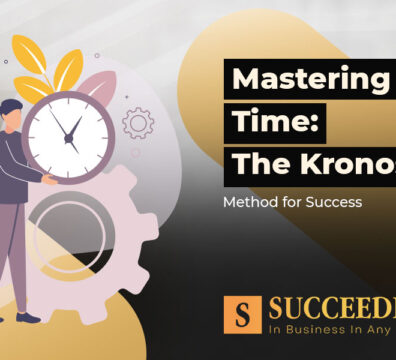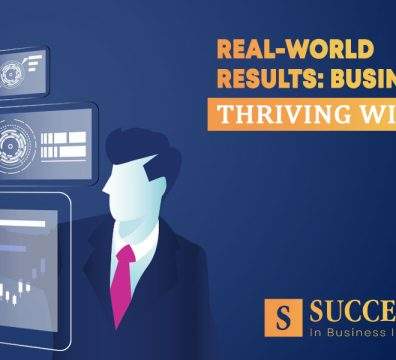Leadership coaching is an invaluable tool for executives and professionals who are looking to reach the highest levels of success. A coach can provide an objective perspective, helping a CEO to identify their strengths and weaknesses and develop strategies to improve their performance.
With a comprehensive assessment, personalized goals, and frequent check-ins, a coach can help a CEO become more self-aware ((https://www.briantracy.com/blog/business-success/business-coaching/)), self-regulate, and emotionally intelligent, leading to increased success for both the individual and the organization.
The evidence is clear that investing in coaching results in a significant return on investment, and many of the world’s leading CEOs tout the benefits of working with a coach.
Are you considering CEO coaching as a way to maximize your potential as an executive? While this type of professional guidance can have many benefits, there are also some drawbacks to consider. In this blog post, Succeeding in Business will discuss the pros and cons of CEO coaching so that you can decide if it’s right for you.
Introduction to Coaching Leadership Style Pros and Cons
The coaching leadership style is a method of developing team members over time, even if the short-term results drop. It emphasizes closer guidance and collaboration between managers and employees, creating clear expectations and allowing individuals to reach their full potential.
This style of management can be very energy and time-consuming, requiring a lot of effort from both the manager and the employees. However, it can lead to a higher level of job satisfaction and worker retention, making it the ideal choice for organizations that don’t require rapid results.
By introducing this collaborative approach to guiding a team, executives and managers can maximize the results of executive coaching and communication skills development for their teams.

Writing a Book with Brian Tracy
Apply now in Just 2 minutes to become co-author of Brian Tracy’s next international bestselling project.
The Pros of Executive Coaching
Executive coaching can provide many advantages to leaders, starting with the ability to develop a heightened self-awareness. This increased awareness can help the executive better understand their strengths, weaknesses, and overall goals. Coaching can also improve self-regulation and increase levels of empathy ((https://www.forbes.com/sites/forbescoachescouncil/2023/03/24/five-benefits-of-executive-coaching-that-might-surprise-you/)), allowing the executive to better relate to those around them.
Furthermore, cognition at work is often improved, as is motivation. Lastly, social skills can also be enhanced through executive coaching. All of these benefits can help executives take their business to the next level and successfully navigate any potential issues that may arise.
The Cons of Executive Coaching
Executive coaching offers a number of potential benefits ((https://www.forbes.com/sites/forbescoachescouncil/2023/03/24/five-benefits-of-executive-coaching-that-might-surprise-you/)), but it also comes with some cons. Coaching can be expensive, which means it may not be a viable option for middle managers who don’t have access to the same level of resources as senior leaders.
Additionally, coaching requires a lot of effort and patience to be effective, and it may not be suitable for all employees. Another con is that coaches are not able to observe the executive in action, as the sessions are structured and intermittent.
Finally, coaching leadership can lead to high levels of uncertainty, which can create psychological problems for some executives. It is important to weigh the pros and cons carefully when considering executive coaching as a strategy for leadership development.
How to Find the Right Executive Coach
Finding the right executive coach is essential for maximizing the results of executive coaching. The best way to do this is to look for fit first. Consider if the coach has experience in your particular industry and if you are comfortable with their style.
Additionally, ask for references and feedback from past clients to ensure they have the necessary expertise and understanding of your unique goals.
It is also important to make sure that your coach is able to provide you with clear feedback, patterning it into key themes to further clarify your strengths and areas of growth. Ultimately, having a great relationship with your coach will be key for achieving the best results for you and your company.
How to Maximize the Results of Executive Coaching
One of the best ways to maximize the results of executive coaching is to ensure that the coach and the executive have a clear understanding of goals and expectations. This includes finding out what the executive wants to achieve, what challenges they are facing, and how they plan on overcoming them.
Coaches should work with the executive to create a plan that incorporates goal setting and feedback that allows the executive to measure their progress.
Additionally, it is important for coaches to provide clear communication and feedback throughout the process, so that both parties are aware of any changes that need to be made. By taking these steps, executives can better understand their progress and make adjustments in order to reach their goals.
Benefits of Hiring an Executive Coach for First-Time Leaders
Hiring an executive coach for first-time leaders can be one of the best investments for any organization. Executive coaching can help first-time leaders develop heightened self-awareness, improved self-regulation, higher levels of empathy, and a boost in cognition at work.
It can also help them increase their motivation and improve their social skills. These benefits can help first-time leaders become more effective in their roles and make a greater impact on the organization as a whole.
By working with an experienced executive coach, they can gain valuable insights and feedback while developing the skills they need to succeed.
Communication Skills Development Through Executive Coaching
Executive coaching is a unique leadership training and development strategy that can help CEOs and other executives hone their communication skills. Through personalized instruction with an experienced coach, executive coaching helps to develop high-potential leaders by focusing on mindset, leading others, navigating conflict, and effective communication.
With this high-level professional leadership development program, executives will benefit from heightened self-awareness, improved self-regulation, higher levels of empathy, improved cognition at work, increased motivation, and better social skills.
Working with an external coach can be a great way to maximize the results of executive coaching and unlock the potential of first-time leaders. When approached in the right way, executive coaching can be a powerful tool in gaining the leadership skills necessary to create positive change in an organization.

Benefits of Working with an External Coach
An external coach can bring an objective and unbiased perspective to the executive coaching process, offering a fresh set of eyes that can help identify areas of improvement and potential solutions. External coaches are also often better at challenging established methods and processes, which helps to keep leaders from getting stuck in their comfort zones.
Furthermore, external coaches bring specialist skills and experience that may not be available internally. This can be especially beneficial for first-time leaders who may need more guidance on how to handle certain situations.
It also allows for a more open dialogue with the coach since they are not affected by internal politics. The cost-effectiveness of external coaches is also often overlooked as an advantage, as it does not come at an additional monetary cost for the organization.
Challenges of Executive Coaching
Executive coaching can be beneficial for many leaders, but there are certain challenges associated with it as well. One of the biggest challenges is that few people are gifted at being effective coaches. It requires confidence, experience, and the ability to give meaningful advice.
Those who do it ineffectively can do more harm than good. Additionally, executive coaching can take a lot of time and energy to coach employees, especially if you have a large team. This can make it difficult to fit into busy schedules.
Lastly, executive coaching can be expensive and may not always be accessible to all levels of leadership. Despite these potential drawbacks, the benefits of executive coaching far outweigh the challenges and should not be overlooked by any leader looking to maximize their potential.
Conclusion
Overall, executive coaching is a beneficial tool for executives to help them reach their goals and develop their skills. With the right coach, executives can gain insight into their own strengths and weaknesses, as well as the strengths and weaknesses of their team. Executive coaching also helps to foster effective communication skills, allowing leaders to create productive and collaborative environments.
Additionally, it allows executives to work through challenging situations and make decisions with confidence. With the right guidance, executive coaching can be a powerful tool for personal and professional growth.
FAQ About Leadership Coaching Pros and Cons
A CEO coach provides guidance, support, and expertise to CEOs to enhance their leadership skills, achieve personal and professional growth, and drive business success. They offer valuable insights, help set strategic goals, and provide accountability and guidance throughout the coaching journey.
Yes, CEOs benefit from coaching. It provides a supportive environment to enhance leadership skills, gain new perspectives, and develop strategies for growth. Coaching improves decision-making, communication, and stress management, leading to effective leadership and better business outcomes.










